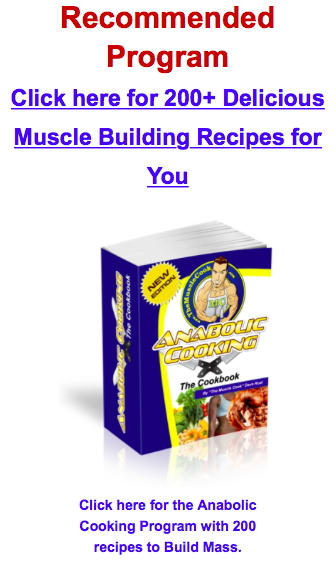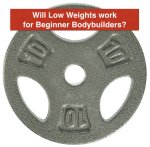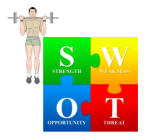Protein Muscle Building Secrets for Muscle Gain and Recovery
"The Quality and Quantity of Protein in your diet impacts muscle gains more than all other nutrients combined. Get Proteins right and you are half way there.
This Article will clear all protein myths and give you accurate protein facts for life".
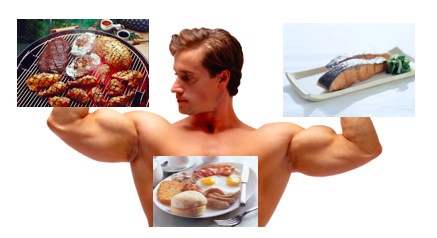 Protein is the king of all Muscle building nutrients!
Protein is the king of all Muscle building nutrients!Two workout partners Jim and Mark have the same routines. They train hard, train with the best exercises, match one another weight-for-weight in the gym and value sleep equally.
Jim gains muscle mass every 1-2 weeks and Mark has little to show for all his hard work.
Whats the difference? Why Jim was gaining muscle right and left? What went wrong with Mark’s training?
The BIG Difference: High quality, First Class Muscle Building proteins.
Jim was consuming the accurate quantity of proteins and more of high quality proteins like beef, whey and fish.
While Mark had low quality proteins like chicken, low quality casein and supplements like gelatine. He bought the cheapest whey and paid a big price in terms of results. And yes, his protein calculations were way off too.
Two Big Blunders!
But what about you? Are you on the right track? Are your proteins of highest quality?
Get Proteins, the building blocks of your muscles right and you are half way through your muscle building diet. In this article I will show you how to avoid mistakes like Mark {and many others do} and how to get your proteins right.
Inside This article:
- Importance of Proteins for the bodybuilder
- How much protein you need to build muscle
- Best protein sources - foods and powders
- Vegetarian Proteins - Worth It?
- 3 Insider Protein strategies for fastest gains
- Protein during Workout Nutrition
- How to make protein work even better
- High protein intake and your health
- Anabolic Cooking
The Importance of Proteins for The Bodybuilder
Two questions for you:
- Can you imagine your home without bricks? No.
- What about inferior quality bricks? Not a good idea you say.
Then why most muscle builders do not eat sufficient high quality, first class proteins of high biological value?
Most eat low quality protein meals, gulp down inferior quality, cheap supplements and wonder where those gains are!
I know it because if you did, you would be basking in your muscle glory, not searching for answers. But right knowledge will correct that.
High quality, first class proteins are the fundamental building blocks of your muscles.
And as a bodybuilder your main goal is to add as much lean muscle mass as possible, proteins are your best bet.
Yes you need quality carbs for intense workouts and essential fats for hormone production. But high intensity muscle stimulation and anabolic hormones are meant to achieve only one goal - Maximise Protein Synthesis.
What happens during Muscle Training?
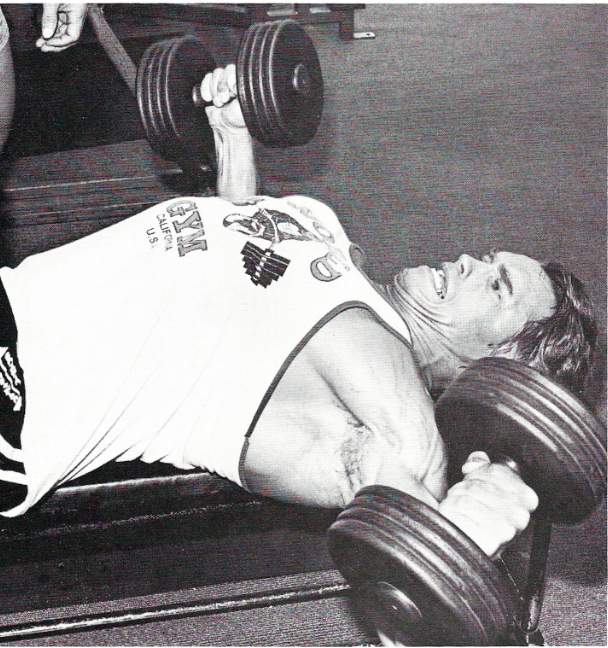 Did you know that you actually break down muscles during training?
Did you know that you actually break down muscles during training?You had an intense set of bench press. You really blasted those last few reps. Your muscles are paining and you are sweating like hell.
Here’s the key question: Have you build your chest muscles? Are they bigger than before training?
Hell No! You have actually broken them down.
Your muscle proteins are being broken down [catabolism] and your muscles are smaller than before training {although they look pumped, thanks to increased blood flow}.
So post workout your muscle gains depends on how fast you repair the broken muscle proteins and with what quality of proteins you get the job done.
Without sufficient proteins, your muscles do not grow at all. They actually weaken as repair needs first class proteins.
Add high quality proteins to the mix and immediately protein synthesis takes off.
New muscle proteins will replace the old, worn out ones. More proteins means more contractile strength for better performance the next time you train. Your muscle building takes off and you get close to your dream muscular body.
But before that, are you eating sufficient quantity of proteins to get the muscles rolling? Lets find out...
How to calculate your protein requirement for muscle growth accurately
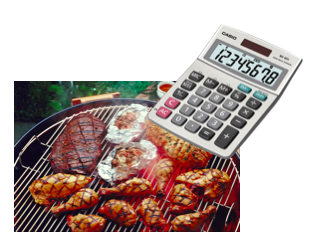 Its time to calculate YOUR Protein Intake!
Its time to calculate YOUR Protein Intake!To build significant amount of muscle mass fast, you need to consume high quantity and quality of proteins everyday.
And rightly so, no other nutrient has been focus of bodybuilders attention than proteins. Highly unscientific, some even ethical protein theories exist. But many facts were proven 20+ years back. {1}
Method One: How to Calculate your protein intake using body weight or lean body weight
Simplest method: Protein requirement for muscle gains: To build muscle mass you need at least 1g protein per pound of bodyweight. So just take your bodyweight in pounds and eat the same number in grams of proteins.
But there is a problem with this method. Bodyweight = lean weight + body fat
But body fat does not need any protein for its maintenance! So adding proteins for it are just an inaccurate method of calculating your protein requirement.
More Accurate Method:
I have found that there is no use in calculating protein requirement based on your present lean weight. Why not add more proteins which are required to reach your future expected lean weight too?
You should eat as per your future goals not current maintenance levels!
Here’s my more effective formula
Eat 1.5 g of protein per pound of lean body weight + 1g for every expected muscle gain over 6 months
To calculate your lean body weight use a simple skin fold callipers.
Example:
Your body weight = 150 lbs
Body fat = 10%
Lean bodyweight = 135 lbs
Expected muscle gains over 6 months = 25 pounds
Your daily protein requirement in grams
= 135 x 1.5 + 25
= 202.5 +25
= 227.5 gram of protein everyday
Lets say after one month you gained 8 pounds of muscle mass.
Your new protein requirement will be 143 X 1.5 +25 = 240g of proteins.
Simple right? But highly effective.
This is the most accurate method of calculating your protein requirement for muscle growth, not just muscle maintenance.
Method Two: How to calculate protein requirement as part of Total Caloric Intake
This formula takes your proteins as part of your total daily caloric intake.
Proteins should consist of at least 30% - 40% of your total daily caloric intake.
You discovered the amazing 40/30//30 formula for nutrient ratio calculation.
The Protein Formula:
(Daily Calories) x (Macronutrient Percentage) = X
(X) ̃ divided by (Number Of Calories Per Gram) = Daily Gram Amount
In our example, 150 lb bodybuilder needs:
3000 X .3 = 900
900/4 = 225
So a 150 lb bodybuilder needs 225g of high quality, first class proteins every day to build 1-2 lbs of lean muscle mass every week.
Caution: 225g of first class proteins are very different from 225g of low quality, plant proteins.
But is only the protein in grams sufficient? No! Proteins you eat should come from quality sources. So lets find some quality foods and supplements...
The Absolute best Protein Sources - Foods and Supplements

In my search for the perfect proteins I spent lot of time. My physiology research was not helping either.
Many experts were still suggesting obsolete methods of finding protein quality like Protein Equivalent Ratio {PER} and Net Protein Utilisation {NPU}. Newer methods like PDCAAS were making rounds.
But Biological Value of Proteins Won me over:
The ultimate method to compare proteins is the Biological Value {BV} method. BV measures the amount of protein retained in the body per gram of protein absorbed.
This means the amount of usable proteins which are being used to build muscles.
Although not accurate {search is still on}, it compares the protein quality directly among various foods. i.e. Egg white with BV of 88 is double effective then beans with BV of 48.
It helps us choose between the many protein choices available.
First Class proteins
Whey peptides
Whey concentrates
Whole eggs
Cows milk
Egg white
Fish
Beef
Chicken
---------
Second Class Proteins
Most Vegetarian proteins
Casein
Soy
Rice
Beans
Biological value
110-159
104
100
91
88
83
80
79
---------
Biological Value
Low BV
77
74
59
49
As you can see the best protein sources are meat, eggs, fish and poultry. They should form the basis of your diet. Want even better option?
Go for grass fed meat whenever possible as they are more nutrient and caloric dense, pesticide anchormen free and the most natural muscle building foods available.
Casein is not a great protein by itself as it is released too slowly in to the blood. But add micellar casein to whey powder and you will the magical effects of combined fast and slow release proteins.
Why Whey proteins are best?
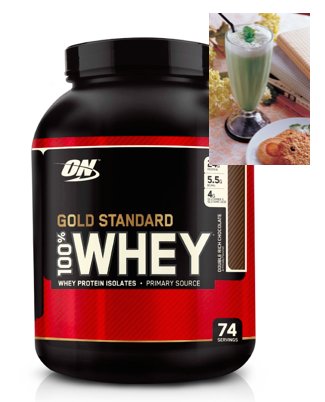
Whey top the list of best protein sources due to high biological value and as they contain plenty of branched chain amino acids which are scientifically to speed up protein synthesis.
A small primer of complete and incomplete proteins
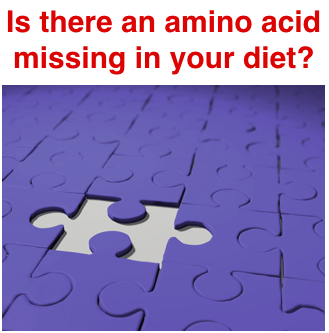
Proteins are made up of amino acids which are the building blocks of proteins. There are 20 of them, 9 of which are essential ones since the body cannot produce them. They need to be provided in the diet or else the body cannot build muscles.
Any food that contains the 9 essential amino acids are called complete proteins. If any one is missing then they are called incomplete proteins. It goes without saying that to build muscles you need complete proteins with high biological value.
A Note on Vegetarian Proteins
 Tofu, Rice and Soy have excellent health benefits but are second grade proteins for muscle building
Tofu, Rice and Soy have excellent health benefits but are second grade proteins for muscle buildingCan you be a vegetarian and still build muscle mass?
Yes, but you need a lot of proteins and you will have a harder time to gain muscle.
Vegetables are excellent for providing the alkaline environment conducive for muscle gain. But vegetarian proteins are of inferior quality and should be your third choice for proteins.
There are 5 problems with veg proteins
1. Vegetarian proteins are incomplete proteins
Even when eaten in combination, like rice with beans, veg proteins are not a good option as you need to eat a lot of them. This will add more calories, sugars and other less useful nutrients which are best avoided. Such high calories lead to the next problem...
2. High Caloric Intake to compensate for incomplete proteins
You need to eat a huge amount of rice with beans to get the amount of proteins in small amount of egg or beef. These calories go straight to your abs and makes you look skinny fat or fatty bodybuilder.
3. Veg Proteins have low BV
Low BV proteins have a tough time incorporating into muscles. They are low quality bricks that do not take up the muscle structure easily.
4. Some foods increase metabolism by thyroid stimulation
Other foods like soy, which are the best known vegetarian protein sources, are known to stimulate thyroid and speed up your metabolism. This makes muscle gain even more difficult as thyroid are catabolic hormones.
Should you shun veg proteins? Ofcourse not!
As I said, veg proteins contain excellent alkalinity. Protein diets make your body acidic. Veggies maintain the acid base balance and make the environment favourable to anabolism.
So get the best BV proteins at all times. Combine them with veg proteins and you will get harder, tenser muscles which are as strong as they look.
But you hop to the grocery stores, here are...
3 Insider Protein Strategies of best muscle builders
You are going to spend money and effort on proteins, so get 3 more facts right.
Protein Pricing
Muscle Building is expensive. Anyone who tells otherwise is either skinny or plain liar.
Not very, but still expensive. And cheaper proteins come at a higher price in terms of results.
Never go for the cheapest proteins, either foods or supplements.
Remember you get what you pay for. Cheaper products are a bunch of denatured proteins made with old school technology, hence cheaper.
Newer methods retain the all important peptide bonds between amino acids and prevents proteins from getting denatured.
Think of each protein as a building block with a unique shape created by the bonds. These act like information keys that fits the enzyme locks in the body to trigger muscle protein synthesis.
Newer technologies take more money hence these supplements are costlier, but they give more value for each gram.
With important peptide bonds lost in cheaper products, you get equal grams per serving but those proteins do nothing to build muscle. They give only gas, results run away from you and people too.
Since you are an informed bodybuilder now, act accordingly.
Cheap proteins do not build muscle, they only shatter dreams. I spent a lot on cheap ones and I should know.
So what should you do? Find the difference between high and low quality proteins.
High Vs Low Quality Proteins
Apart from biological value, select proteins which are
- fresh,
- mostly from grass fed sources,
- contain complete proteins like animal foods and
- eaten in the right quantities as discussed above
These are high quality, first class proteins which the body can immediately use to build muscle mass.
Avoid low quality stuff like casein, gelatin, cheap whey powders and vegetarian proteins.
That brings us to the third key...
Select Highest Quality Protein Supplements
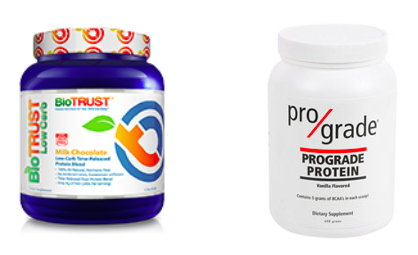 Biotrust and Prograde are my top 2 recommended protein powders
Biotrust and Prograde are my top 2 recommended protein powdersQuality Proteins = Quality, Lean, Rock hard Muscles
So if low quality supps are a waste of money/time, what are best protein powders?
I cover more details in the how to select the best protein powder article but here are 5 things to look for in your protein powder. the supplement label gives you these details.
My 5 Protein Supplement selection secrets
1. Ion-exchange whey proteins, isolates and concentrates are the best value for money.
2. Choose the ones with least/no preservatives.
3. Choose Microfiltered and Cross Flow Micro-Filtration Whey Protein Isolates
4. Hormone free, certified are a must
5. Low carb. Avoid high carb and No carb powders {see below}
Protein Intake During and around Workouts
Protein synthesis is the key to new muscle growth.
There are times when the body is primed for protein synthesis. It acts like a thirsty, dry land which soaks up rain water like crazy.
The workout window, 1 hour before workout and 1 hour after workout are such thirsty times and the best way to stimulate protein synthesis.
Studies have shown the effectiveness of protein + carbohydrate supplements before, during and after workouts. {2}
I have tried them myself and results have been pleasantly surprising. And yes, there is research backing the use of P + C supplements especially liquid nutrition around workout.
Why workout proteins work?
Firstly, Your muscles start breaking proteins for energy as soon as your workout begins. If you had a pre workout shake 15-30 mins before workout, this breakdown is kept down.
Remember you want muscle damage caused by training, but you should minimise protein catabolism for energy purposes. Pre workout supplements work here.
Secondly, during and after workouts, your muscles are very receptive to proteins to start the repair and building process. Workout and post-workout proteins work here. They go to work immediately and start building those muscles you crave for.
Here the best recommendations for your workout nutrition.
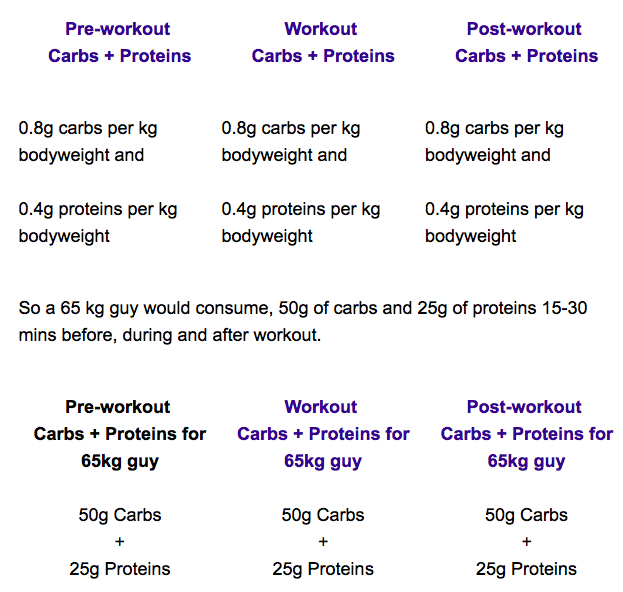
How to make your proteins work double harder for you

If you remember the muscle science article, insulin is the master hormone for muscle building. It takes proteins you eat to target muscle cells for protein synthesis.
But do you know what makes insulin work better?
Use Carbohydrates.
Research has proven the role of adding carbs to protein drinks and meals for accelerated muscle recovery {more glycogen synthesis} and muscle growth {more protein synthesis}. {3}
This is especially true post workout, hence the above recommendations.
Even at other times, carbs stimulate insulin release better, and the released insulin takes the proteins consumed into the muscle faster.
Bottomline:
- Never eat proteins alone. Add carbs to the mix.
- Don’t be afraid of carbs. 1:2 ratio of P:C is optimal for muscle building
- Eat more carbs post workout and lesser before sleep. Let protein ratio be the same.
With all the benefits of a high protein diet, are there any side effects? Read on to find out...
High Protein Intake and your health
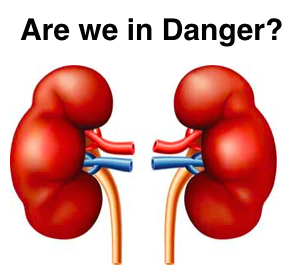 No. High Protein diets in healthy people are safe.
No. High Protein diets in healthy people are safe.There are plenty of Myths surrounding proteins.
- Are proteins safe in such higher doses?
- I heard they are bad on the kidneys?
- I also heard my blood turns acidic?
- What is I am allergic to proteins?
The protein intake we calculated is twice the recommended daily allowance of Food committees. Both bodybuilders and research has proven the need for added proteins for muscle building. but is it safe? lets find out.
High proteins and kidney health
The primary reason people worry about kidney health is because a high protein diet places a greater load on the kidneys.
Although theoretically correct, practically it is not.
Healthy kidneys have NO problem with higher protein diets provided they are healthy to begin with and your water intake is optimal. Water helps kidneys clear proteins better.
Not just bodybuilders, high protein diets have been proven useful in diabetics and obese individuals who have a risk of weak kidneys. {4}
Bottomline: Compliment a high protein diet with plenty of clean drinking water
Proteins, the acidifying agents
High protein diets make your body acidic and an acidic environment is less anabolic. Proteins are made up of amino acids remember?
This is the reason I urge you to have alkalinising foods like plenty of vegetables and fruits. they combat the acidification produced by proteins.
3 More things you can do to combat acidosis
1. Eat mostly unprocessed foods
2. Have unpasteurised or flash pasteurised diary products mostly
3. Add chlorophyll containing foods {high ph} like peas, legumes, dark green leafy vegetables, and seaweeds to your diet regularly.
Protein allergies for the bodybuilder
I have had clients who grow allergic to proteins. On examination I find that they eat the same protein sources for weeks and months.
Its either chicken, chicken and chicken, OR
Its fish, fish and fish.
If you eat the same foods repeatedly, you develop protein allergy. Such allergies can also lead to abdominal fat gain as they cause insulin resistance.
Solution: rotate your protein sources. Change your foods to include a variety of protein sources. Each different proteins every week.
Conclusion: Proteins are the fundamental nutrients for body repair and growth, including muscles. High quality sources from variety of sources is the key for optimal health, fitness and muscle growth.
Anabolic cooking Secrets for the enlightened Bodybuilder
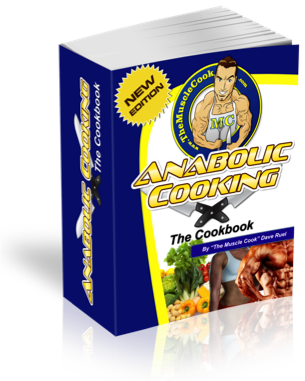 Try Anabolic Cooking with 200+ Tasty, Muscle Building Recipes. Click Here.
Try Anabolic Cooking with 200+ Tasty, Muscle Building Recipes. Click Here.Foods should form the basis of your muscle building diet. Supplements are not a substitute for real food.
Real food contains vitamins, creatine, minerals and phytonutrients which are yet to be captured in a pill or powder.
But most bodybuilders face the biggest challenge of their lives - Cooking.
I have faced this problem, lost and then finally won over it. and it has been the biggest secret of my success.
Master 10-15 muscle building recipes. I recommend Anabolic Cooking program as it has over 200 tasty, muscle building recipes made from real food.
You can cook them in as little as 15 mins and enjoy tasty, healthy, muscle building meals at least 2-3 times a day.
I highly recommend the anabolic Cooking Program.
References:
1. Protein requirements and muscle mass/strength changes during intensive training in novice bodybuilders.
Lemon PW, Tarnopolsky MA, MacDougall JD, Atkinson SA.J Appl Physiol (1985). 1992 Aug;73(2):767-75.
2. Postexercise muscle glycogen recovery enhanced with a carbohydrate-protein supplement.
Berardi JM, Price TB, Noreen EE, Lemon PW.Med Sci Sports Exerc. 2006 Jun;38(6):1106-13.
3. Recovery from a cycling time trial is enhanced with carbohydrate-protein supplementation vs. isoenergetic carbohydrate supplementation.
Berardi JM, Noreen EE, Lemon PW.J Int Soc Sports Nutr. 2008 Dec 24;5:24. doi: 10.1186/1550-2783-5-24.
4. The role of overweight and obesity in the cardiorenal syndrome.
Sowers, James R., Adam Whaley-Connell, Melvin R. Hayden. Cardiorenal Medicine. 1 no.1 (2011): 5-12.
Recent Articles
-
Bodybuilding Workouts & Muscle Building Workout Routines that Build Muscle
Jul 01, 17 09:52 AM
Discover effective bodybuilding workouts and muscle building routines with strategies to make every workout a killer one. Download free 3-day, 4-day or 5-day workout routines. -
Why Beginner Bodybuilders must use Light Weights for Muscle Gain
Jul 01, 17 09:44 AM
Discover the science why beginner bodybuilders must use light to moderate weights to gain maximum muscle mass in the first 2-3 months of training to gain muscle, prevent injuries and grow bigger. -
How to do a S.W.O.T Analysis of Your Bodybuilding Workout
Oct 26, 16 01:41 AM
Looking to take your bodybuilding workout to the next level? Then do a SWOT analysis of your muscle building workout to increase your lifts every workout.
